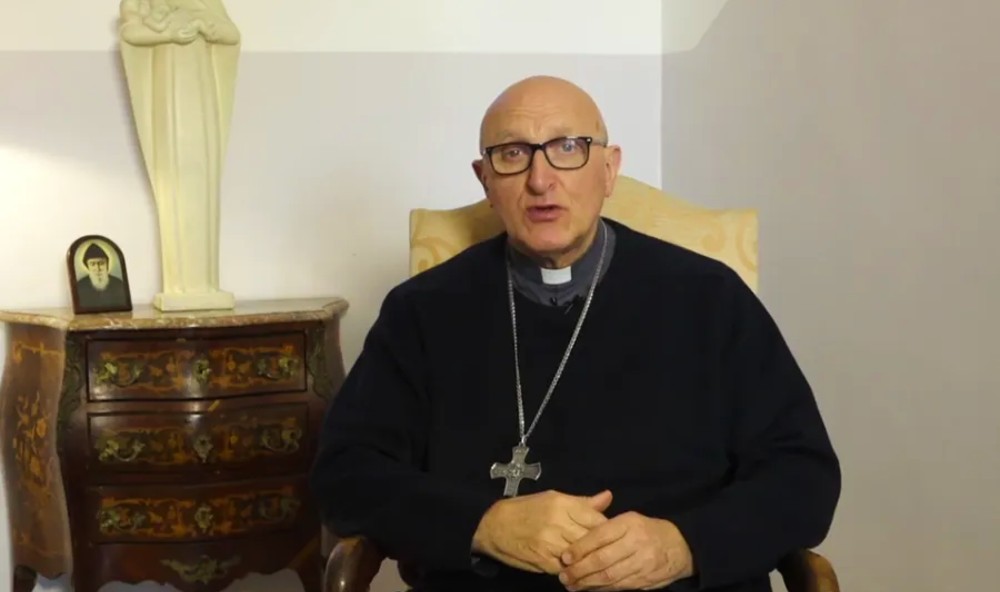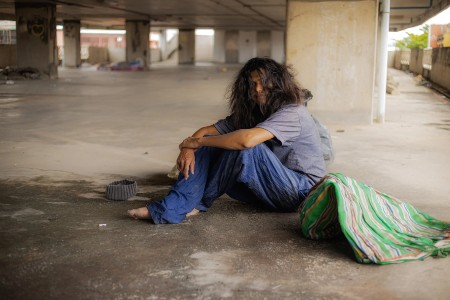We ask you, urgently: don’t scroll past this
Dear readers, Catholic Online was de-platformed by Shopify for our pro-life beliefs. They shut down our Catholic Online, Catholic Online School, Prayer Candles, and Catholic Online Learning Resources—essential faith tools serving over 1.4 million students and millions of families worldwide. Our founders, now in their 70's, just gave their entire life savings to protect this mission. But fewer than 2% of readers donate. If everyone gave just $5, the cost of a coffee, we could rebuild stronger and keep Catholic education free for all. Stand with us in faith. Thank you.Help Now >
Remain Ever Hopeful Because of Christ: Pope's Visit to Lebanon and His Closing Homily
FREE Catholic Classes
The significance of the Holy Father's apostolic visit to Lebanon is very clear. Its impact will be felt in the months ahead. The courage demonstrated by his his visit, in the face of intense danger, as well as the content of his messages, are prophetic and historic. Catholics, other Christians, other people of faith and all people of good will the world over should pray that the message and the mission of this great Christian Leader, given in such an urgent hour in history, be heard and bear the fruit so desperately needed.
Highlights
Catholic Online (https://www.catholic.org)
9/17/2012 (1 decade ago)
Published in Middle East
Keywords: Lebanon, Apostolic Visit, Pope, Pope Benedict, Beirut, Islam, Muslim, Christians in the Middle East, Church in the Middle East, Pope benedict XVI, Homily, Deacon Keith Fournier.
P>BEIRUT, Lebanon (Catholic Online) - While the world watched the dramatic events occurring in Egypt and throughout the Middle East at the end of the last week, the successor of the Apostle Peter, Pope Benedict XVI, traveled to Lebanon as a Messenger of peace. On the final day of his three day apostolic visit, he presided over the Holy Mass at the Beirut Waterfront.
Throughout this entire apostolic visit, this brave Pope spoke with both courage and compassion to massive crowds at every venue. He called all of the people of the Middle East to work together to build a culture of peace. He especially encouraged the Christians in these lands, who have suffered increasing hostilites and endured intense persecution, by reminding them that their presence in the Holy Land is ancient, vital - and that they have a right to be there.
However, he went beyond that, he encouraged all of them - and in a particular way the young - to stay in the Middle East, remain faithful and contribute to the solution as the escalating violence rages all around them. In short, he called them to heroic virtue and sacrifical service to the Lord.He called them to mission.
During the three days, the Pope pointed repeatedly to the importance of the post-Synodal Apostolic Exhortation which was released and signed upon his arrival. It is on the Communion and Witness of the Church in the Middle East.It can be read in its entirety here. Pope Benedict XVI emphasized his conviction that this Apostolic Exhortation, and its recommendations for the future, offers a framework for the vital work of peace which lies ahead but it will require the faithful, and all who desire peace, to work toward those goals. The significance of the Holy Father's apostolic visit to Lebanon is very clear. Its impact will be felt in the months ahead.
The courage demonstrated by his his visit, in the face of intense danger, as well as the content of his messages, are prophetic and historic. Catholics, other Christians, other people of faith and all people of good will the world over should pray that the message and the mission of this great Christian Leader, given in such an urgent hour in history, be heard and bear the fruit so desperately needed. Below we present the full text of Pope Benedict's Homily on Sunday in Beirut:
*****
Sunday 16 September 2012, Homilu
Dear Brothers and Sisters,
"Blessed be God, the Father of our Lord Jesus Christ!" (Eph 1:3). Blessed be God on this day when I have the joy of being here with you, in Lebanon, to consign to the Bishops of the region my Post-Synodal Apostolic Exhortation Ecclesia in Medio Oriente! I offer heartfelt thanks to His Beatitude Bechara Boutros Raď for his kind words of welcome. I greet the other Patriarchs and Bishops of the Eastern Churches, the Latin Bishops of the neighbouring regions, and the Cardinals and Bishops who have come from other countries.
I greet all of you with great affection, dear brothers and sisters from Lebanon and from throughout this beloved region of the Middle East, as you join with the Successor of Peter in celebrating Jesus Christ crucified, dead and risen. My respectful greeting goes also to the President of the Republic, to the Lebanese authorities, and to the leaders and followers of the other religious traditions who have elected to be present this morning.
On this Sunday when the Gospel asks us about the true identity of Jesus, we find ourselves transported with the disciples to the road leading to the villages around Caesarea Philippi. Jesus asks them: "Who do you say that I am?" (Mk 8:29). The moment he chose to ask this question is not insignificant. Jesus was facing a decisive turning-point in his life.
He was going up to Jerusalem, to the place where the central events of our salvation would take place: his crucifixion and resurrection. In Jerusalem too, following these events, the Church would be born. And at this decisive moment, Jesus first asks his disciples: "Who do men say that I am?" (Mk 8:27). They give very different answers: John the Baptist, Elijah, one of the prophets!
Today, as down the centuries, those who encounter Jesus along their own way give their own answers. These are approaches which can be helpful in finding the way to truth. But while not necessarily false, they remain insufficient, for they do not go to the heart of who Jesus is. Only those willing to follow him on his path, to live in fellowship with him in the community of his disciples, can truly know who he is. Finally, Peter, who had dwelt with Jesus for some time, gives his answer: "You are the Christ" (Mk 8:29).
It is the right answer, of course, but it is still not enough, since Jesus feels the need to clarify it. He realizes that people could use this answer to advance agendas which are not his, to raise false temporal hopes in his regard. He does not let himself be confined to the attributes of the human saviour which many were expecting.
By telling his disciples that he must suffer and be put to death, and then rise again, Jesus wants to make them understand his true identity. He is a Messiah who suffers, a Messiah who serves, and not some triumphant political saviour. He is the Servant who obeys his Father's will, even to giving up his life. This had already been foretold by the prophet Isaiah in today's first reading.
Jesus thus contradicts the expectations of many. What he says is shocking and disturbing. We can understand the reaction of Peter who rebukes him, refusing to accept that his Master should suffer and die! Jesus is stern with Peter; he makes him realize that anyone who would be his disciple must become a servant, just as he became Servant.
Following Jesus means taking up one's cross and walking in his footsteps, along a difficult path which leads not to earthly power or glory but, if necessary, to self-abandonment, to losing one's life for Christ and the Gospel in order to save it. We are assured that this is the way to the resurrection, to true and definitive life with God. Choosing to walk in the footsteps of Jesus Christ, who made himself the Servant of all, requires drawing ever closer to him, attentively listening to his word and drawing from it the inspiration for all that we do.
In promulgating the Year of Faith, which is due to begin next 11 October, I wanted each member of the faithful to renew his or her commitment to undertaking this path of sincere conversion. Throughout this Year, then, I strongly encourage you to reflect more deeply on the faith, to appropriate it ever more consciously and to grow in fidelity to Christ Jesus and his Gospel.
Brothers and sisters, the path on which Jesus wishes to guide us is a path of hope for all. Jesus' glory was revealed at the very time when, in his humanity, he seemed weakest, particularly through the incarnation and on the cross. This is how God shows his love; he becomes our servant and gives himself to us. Is this not an amazing mystery, one which is at times difficult to accept? The Apostle Peter himself would only come to understand it later.
In today's second reading, Saint James tells us to what extent our walking in the footsteps of Jesus, if it is to be authentic, demands concrete actions. "I, by my works, will show you my faith" (Jas 2:18). It is an imperative task of the Church to serve and of Christians to be true servants in the image of Jesus. Service is a foundational element of the identity of Christ's followers (cf. Jn 13:15-17). The vocation of the Church and of each Christian is to serve others, as the Lord himself did, freely and impartially.
Consequently, in a world where violence constantly leaves behind its grim trail of death and destruction, to serve justice and peace is urgently necessary for building a fraternal society, for building fellowship! Dear brothers and sisters, I pray in particular that the Lord will grant to this region of the Middle East servants of peace and reconciliation, so that all people can live in peace and with dignity. This is an essential testimony which Christians must render here, in cooperation with all people of good will. I appeal to all of you to be peacemakers, wherever you find yourselves.
Service must also be at the heart of the life of the Christian community itself. Every ministry, every position of responsibility in the Church, is first and foremost a service to God and to our brothers and sisters. This is the spirit which should guide the baptized among themselves, and find particular expression in an effective commitment to serving the poor, the outcast and the suffering, so that the inalienable dignity of each person may be safeguarded.
Dear brothers and sisters who are suffering physically or spiritually, your sufferings are not in vain! Christ the Servant wished to be close to the suffering. He is always close to you. Along your own path, may you always find brothers and sisters who are concrete signs of his loving presence which will never forsake you! Remain ever hopeful because of Christ!
And may all of you, my brothers and sisters who have come to take part in this celebration, strive to be ever more fully conformed to the Lord Jesus, who became the Servant of all for the life of the world. May God bless Lebanon; may he bless all the peoples of this beloved region of the Middle East, and may he grant them the gift of his peace. Amen.
---
'Help Give every Student and Teacher FREE resources for a world-class Moral Catholic Education'
Copyright 2021 - Distributed by Catholic Online
Join the Movement
When you sign up below, you don't just join an email list - you're joining an entire movement for Free world class Catholic education.
-

-
Mysteries of the Rosary
-
St. Faustina Kowalska
-
Litany of the Blessed Virgin Mary
-
Saint of the Day for Wednesday, Oct 4th, 2023
-
Popular Saints
-
St. Francis of Assisi
-
Bible
-
Female / Women Saints
-
7 Morning Prayers you need to get your day started with God
-
Litany of the Blessed Virgin Mary
Pope Francis Accepts Resignation of Bishop Dominique Rey of Frejus-Toulon
-

Bound by Betrayal: Katie's Struggle with Lust, Lies, and Redemption
-

John: A Story of Addiction, Hopelessness, and the Search for Redemption
-
Science vs. Faith: The Battle for Truth and Hope
-
Regenerative Agriculture: The Answer to America's Chemical-Laden Food Crisis
Daily Catholic
 Daily Readings for Wednesday, January 08, 2025
Daily Readings for Wednesday, January 08, 2025 St. Thorfinn: Saint of the Day for Wednesday, January 08, 2025
St. Thorfinn: Saint of the Day for Wednesday, January 08, 2025 Prayer for a Blessing on the New Year: Prayer of the Day for Tuesday, December 31, 2024
Prayer for a Blessing on the New Year: Prayer of the Day for Tuesday, December 31, 2024- Daily Readings for Tuesday, January 07, 2025
- St. Raymond of Pennafort: Saint of the Day for Tuesday, January 07, 2025
- St. Theresa of the Child Jesus: Prayer of the Day for Monday, December 30, 2024
![]()
Copyright 2024 Catholic Online. All materials contained on this site, whether written, audible or visual are the exclusive property of Catholic Online and are protected under U.S. and International copyright laws, © Copyright 2024 Catholic Online. Any unauthorized use, without prior written consent of Catholic Online is strictly forbidden and prohibited.
Catholic Online is a Project of Your Catholic Voice Foundation, a Not-for-Profit Corporation. Your Catholic Voice Foundation has been granted a recognition of tax exemption under Section 501(c)(3) of the Internal Revenue Code. Federal Tax Identification Number: 81-0596847. Your gift is tax-deductible as allowed by law.






 Daily Readings for Wednesday, January 08, 2025
Daily Readings for Wednesday, January 08, 2025 St. Thorfinn: Saint of the Day for Wednesday, January 08, 2025
St. Thorfinn: Saint of the Day for Wednesday, January 08, 2025 Prayer for a Blessing on the New Year: Prayer of the Day for Tuesday, December 31, 2024
Prayer for a Blessing on the New Year: Prayer of the Day for Tuesday, December 31, 2024

